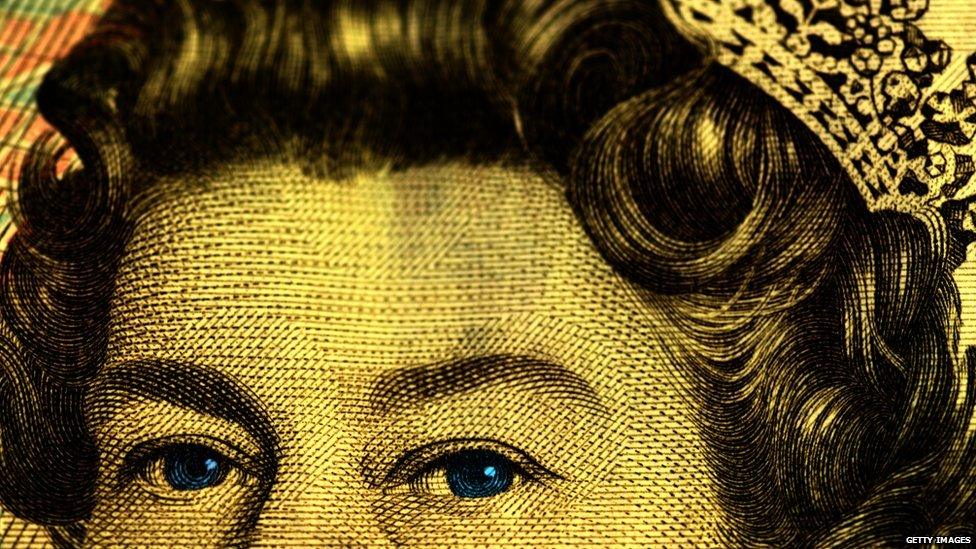Tax credits: Are you a winner or loser?
- Published

There's a major vote in the House of Lords on Monday on whether to cut tax credits from April 2016.
They're the benefit payments claimed by about four and a half million low paid workers and parents.
It's a huge political row and some Lords want to block the plans.
But if they go through, could you be a winner or a loser?

For better or worse? Depends who you believe:
Independent researchers believe three million families will be worse off if the payments are cut.
But the government claims overall, nine out of 10 families will be better off by 2020, saying they'll be compensated by wage growth and...
A new National Living Wage: Replacing the £6.50 minimum wage for over 24s, starting at £7.20 in April, rising to £9 an hour by 2020.
A rise in tax-free earnings, external: From April 2016 the first £11,000 of your pay will be tax free. (At the moment, it's £10,600.) It'll mean a typical basic rate taxpayer taking home an extra £80 per year. It's set to rise to £12,500 by 2020.
More free childcare: Plans to double the free childcare allowance in England (for three and four-year-olds) to 30 hours a week where both parents work. It's not clear how many hours you'll have to work to qualify and not all nurseries will offer it. The plan is to roll out nationally several months after any tax credit cuts come in.
So where do you fit in? Go to the situation closest to you for a rough idea...

16 to 24-year-olds without children
Outlook: One of the groups least affected by the changes. That's because few under-25s are eligible for tax credits unless they have children - so no cuts to worry about.
Losses: You'll miss out on a compulsory pay rise in the form of the National Living Wage - which is only for over 24s.
Gains: Like other age groups, young workers earning between £11,000 and £110,000 should benefit from an increase in tax-free earnings - making basic rate taxpayers £80 a year better off. But younger workers are the most likely to earn below £11,000 and therefore would miss out on the tax cut.
16 to 24-year-old parents
Outlook: Could be some of the hardest hit. Younger parents are more likely to be lower paid - so may well be on tax credits.
Losses: You're facing potential cuts to tax credits (read about the changes). And you won't benefit from the National Living Wage because you're under 25.
Gains: Some parents may benefit from an increase in tax free earnings - that could make them £80 a year better off if they earn between £11,000 and £110,000. They could also be eligible for more free childcare as long as their kids are three or four - although many on tax credits are already entitled to free childcare. Researchers from the Resolution Foundation, external think the gains will be greatly overshadowed by losses.

Over 24s - working full time - close to minimum wage - claiming tax credits
Outlook: Potentially worse off.
Losses: Independent researchers at the Institute For Fiscal Studies and the Resolution Foundation, which campaigns for lower-income families, think on average, the loss in tax credit cuts will be greater than the gains from the National Living Wage, the personal allowance and free childcare. Read what the cuts mean.
Gains: Those earning more than £11,000 could benefit from an increase in tax-free earnings - making basic rate taxpayers £80 a year better off. Some could be better off overall when considering all changes, but it depends on family circumstances and researchers expect most to be worse off.
Over 24s - working around 16 hours a week - close to minimum wage - claiming tax credits
Outlook: Potentially harder hit than full time workers.
Losses: If you work part time, it's likely you're on a lower income than full time workers - so you could be claiming the maximum tax credit payments. If that's the case, you could see a sharper cut than others (read about the cuts). Many single parents work in these conditions, so independent researchers expect them to be some of the hardest hit. You're also likely to earn less than £11,000, so won't benefit from a rise in tax-free earnings.
Gains: Overall researchers think this group could be the worst off, but it depends on family circumstances.
Over 24s - around minimum wage - no children or tax credits:
Outlook: If you're close to the minimum wage but don't claim tax credits (because you don't have children, work too many hours or have a higher earning partner) - you could be better off.
Losses: Potentially none, because you're not losing tax credits, but it depends on your family circumstances.
Gains: You'll get the new National Living Wage of £7.20 an hour. And if you earn over £11,000, an extra £400 of your salary will be tax-free from April 2016, meaning you take home an extra £80 per year.

Over 24s - not low paid - no tax credits
Outlook: If you are reasonably well paid, but earn less than £110,000, you should be better off.
Losses: Potentially none, because you're not losing tax credits, but it depends on your family circumstances.
Gains: An extra £400 of your salary will be tax-free from April 2016 - giving a typical basic rate taxpayer an extra £80 to take home across the year.
The bigger picture:
The Conservatives want to be seen as the party encouraging people in to work and supporting "hard-working people".
But critics, including some within the party, believe the changes could affect those very people.
The government says it wants to change the "merry-go-round" which sees people paying taxes and getting it back in benefits.
Instead, it wants to make employers pay people enough to live on and cut the country's big welfare bill.
Chancellor George Osborne claims anyone working full-time on the National Living Wage will be better off by 2017, after changes to taxes, tax credits and benefits are taken into consideration.
But many people claiming tax credits are likely to be working part-time.
Independent research from the Institute for Fiscal Studies suggests thirteen million families will lose £260 a year on average when considering all the changes.
The Resolution Foundation believes 200,000 working families will be pushed below the poverty line by the changes.
Follow @BBCNewsbeat, external on Twitter, BBCNewsbeat, external on Instagram, Radio1Newsbeat, external on YouTube and you can now follow BBC_Newsbeat on Snapchat